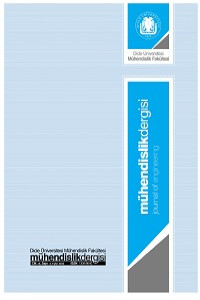Abstract
Bir birey hakkındaki herhangi bir veri, kişisel veri olarak kabul edilir. Bu kişisel veriler bireyi benzersiz bir şekilde tanımlayan değerlerdir. İsim, soy isim, kimlik numarası, anne kızlık soyadı ve benzeri şekillerde olabilen bu veriler bireyin kimliğini belirlemek için kullanılmaktadır. Ayrıca, bireyin çevrimiçi paylaştığı resimleri, mesajları, sağlık, eğitim, finans ve istihdam gibi verileri de kişiyi çevrimiçi olarak tanımlamada kullanılabilir. Bu sebeple kişisel düzeydeki verilerin ve bilgi işlem cihazlarının korunması gerekmektedir. Bu bağlamda; siber güvenlik, ilgili ağa bağlı sistemleri ve tüm verileri yetkisiz kullanımdan veya zarardan korumak için gereken çabaların bütünü olarak tanımlanır. Kişisel siber güvenlik ise bu çabaların bir kısmının siber farkındalık ile son kullanıcılar tarafından da gerçekleştirilmesidir. Son kullanıcıların sistem ya da veri güvenliğindeki en önemli görevlerinden birisi güvenli parola oluşturmalarıdır. Bu çalışma çevrimiçi bireysel kimlik verilerinin güvenliğinin sağlanması kapsamında güvenli parola oluşturulması için son kullanıcılara yönelik yeni yaklaşımlar önermektedir.
References
- N. Wiener, Cybernetics Or Control and Communication in the Animal and the Machine. MIT Press, 1961.
- M. S. Tok ve A. A. Selçuk, “Nesnelerin İnternetinin Güvenliğinde İnsan Faktörü”, Türkiye Bilişim Vakfı Bilgisayar Bilimleri ve Mühendisliği Dergisi, c. 12, sy 2, Art. sy 2, Ara. 2019.
- M. Butavicius, K. Parsons, M. Lillie, A. McCormac, M. Pattinson, ve D. Calic, “When believing in technology leads to poor cyber security: Development of a trust in technical controls scale”, Computers & Security, c. 98, s. 102020, Kas. 2020, doi: 10.1016/j.cose.2020.102020.
- M. Grobler, M. A. P. Chamikara, J. Abbott, J. J. Jeong, S. Nepal, ve C. Paris, “The importance of social identity on password formulations”, Pers Ubiquit Comput, c. 25, sy 5, ss. 813-827, Eki. 2021, doi: 10.1007/s00779-020-01477-1.
- M. Z. Gündüz ve R. Daş, Sosyal Mühendislik: Yaygın Ataklar ve Güvenlik Önlemleri, c. 9. 9. Uluslararası Bilgi Güvenliği ve Kriptoloji Konferansı, 2016.
- P. A. Grassi, M. E. Garcia, ve J. L. Fenton, “Digital identity guidelines: revision 3”, National Institute of Standards and Technology, Gaithersburg, MD, NIST SP 800-63-3, Haz. 2017. doi: 10.6028/NIST.SP.800-63-3.
- “Kişisel Verileri Koruma Kurumu | KVKK | Kişisel Veriler”. https://www.kvkk.gov.tr/Icerik/2050/Kisisel-Veriler (erişim May. 12, 2022).
- Y. Guo, Z. Zhang, Y. Guo, ve X. Guo, “Nudging personalized password policies by understanding users’ personality”, Computers & Security, c. 94, s. 101801, Tem. 2020, doi: 10.1016/j.cose.2020.101801.
- F. Z. Glory, A. Ul Aftab, O. Tremblay-Savard, ve N. Mohammed, “Strong Password Generation Based On User Inputs”, içinde 2019 IEEE 10th Annual Information Technology, Electronics and Mobile Communication Conference (IEMCON), Eki. 2019, ss. 0416-0423.
- T. Georg, B. Oliver, ve L. Gregory, “Issues of Implied Trust in Ethical Hacking”, The ORBIT Journal, c. 2, sy 1, ss. 1-19, Oca. 2018, doi: 10.29297/orbit.v2i1.77.
- Y. Ayrour, A. Raji, ve M. Nassar, “Modelling cyber-attacks: a survey study”, Network Security, c. 2018, sy 3, ss. 13-19, Mar. 2018, doi: 10.1016/S1353-4858(18)30025-4.
- B. Alhayani, S. T. Abbas, D. Z. Khutar, ve H. J. Mohammed, “Best ways computation intelligent of face cyber attacks”, Materials Today: Proceedings, Mar. 2021, doi: 10.1016/j.matpr.2021.02.557.
- K. S. M. Moe ve T. Win, “Improved hashing and honey-based stronger password prevention against brute force attack”, içinde 2017 International Symposium on Electronics and Smart Devices (ISESD), Eki. 2017, ss. 1-5. doi: 10.1109/ISESD.2017.8253295.
- “Bilgisayarımı virüslerden koruma”. https://support.microsoft.com/tr-tr/windows/bilgisayar%C4%B1m%C4%B1-vir%C3%BCslerden-koruma-b2025ed1-02d5-1e87-ba5f-71999008e026 (erişim May. 09, 2022).
- “VirusTotal - Home”. https://www.virustotal.com/gui/home/upload (erişim May. 08, 2022).
- Y. Zhao, W. Li, Z. Zhang, ve P. Wang, “Password Expiration Strategy: A Perspective of Ecological Memory”, içinde 2019 IEEE Fifth International Conference on Big Data Computing Service and Applications (BigDataService), Nis. 2019, ss. 167-172. doi: 10.1109/BigDataService.2019.00029.
- B. Ur vd., “Design and Evaluation of a Data-Driven Password Meter”, içinde Proceedings of the 2017 CHI Conference on Human Factors in Computing Systems, New York, NY, USA, May. 2017, ss. 3775-3786. doi: 10.1145/3025453.3026050.
- D. Pasquini, M. Cianfriglia, G. Ateniese, ve M. Bernaschi, “Reducing Bias in Modeling Real-world Password Strength via Deep Learning and Dynamic Dictionaries”, 2021, ss. 821-838. Erişim: Kas. 01, 2021. [Çevrimiçi]. Erişim adresi: https://www.usenix.org/conference/usenixsecurity21/presentation/pasquini
- K. S. Walia, S. Shenoy, ve Y. Cheng, “An Empirical Analysis on the Usability and Security of Passwords”, içinde 2020 IEEE 21st International Conference on Information Reuse and Integration for Data Science (IRI), Ağu. 2020, ss. 1-8. doi: 10.1109/IRI49571.2020.00009.
- “How Secure Is My Password?” https://howsecureismypassword.net/ (erişim May. 02, 2022).
Details
| Primary Language | Turkish |
|---|---|
| Journal Section | Articles |
| Authors | |
| Early Pub Date | September 30, 2022 |
| Publication Date | September 30, 2022 |
| Submission Date | May 29, 2022 |
| Published in Issue | Year 2022 Volume: 13 Issue: 3 |

